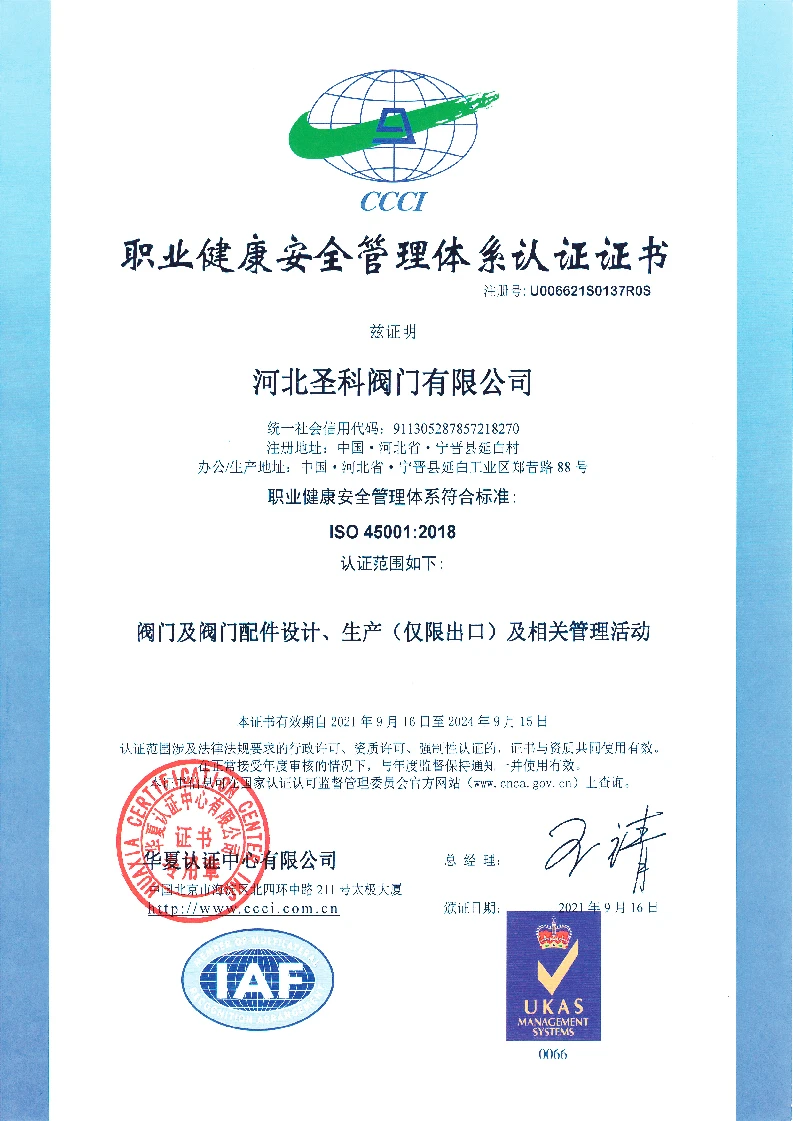10 月 . 19, 2024 07:01 Back to list
Understanding the Functionality and Benefits of Silent Check Valves in Fluid Systems
The Importance of Silent Check Valves in Fluid Control Systems
In various industrial applications, ensuring the safe and efficient flow of fluids is paramount. One critical component in achieving this is the silent check valve. Designed to prevent backflow while minimizing the noise typically associated with standard check valves, silent check valves have become increasingly essential in modern fluid control systems.
Understanding Check Valves
Before delving into silent check valves, it's vital to comprehend the function of conventional check valves. A check valve is a type of valve that allows fluid to flow in one direction only, effectively preventing backflow. This feature is crucial in systems where backflow could cause damage, contamination, or operational failures.
Standard check valves, while effective, often produce significant noise due to the abrupt changes in water or fluid flow. This noise can be disruptive in certain environments, such as hospitals, laboratories, and residential areas, where maintaining a quiet atmosphere is crucial. This need for quieter operation led to the development of the silent check valve.
What is a Silent Check Valve?
A silent check valve, also known as a piston check valve or a spring-loaded check valve, operates on a similar principle to traditional check valves but incorporates a few key design elements that reduce noise. Instead of a flap or disc, silent check valves use a piston mechanism, which opens and closes smoothly, allowing for a gradual change in pressure and flow. This design not only minimizes noise but also enhances the valve’s overall performance.
Benefits of Silent Check Valves
1. Noise Reduction The primary advantage of silent check valves is their ability to reduce noise levels. This is especially beneficial in noise-sensitive environments, ensuring that operations can continue without disruption.
silent check valve

2. Improved Flow Characteristics Silent check valves offer superior flow characteristics compared to traditional valves. Because of their design, they can handle higher flow rates and exhibit lower pressure loss. This enhanced efficiency can lead to improved system performance and operational costs.
3. Reliable Backflow Prevention Despite their name, silent check valves don’t compromise on functionality. They effectively prevent backflow, protecting pumps and other equipment from damage caused by hydraulic surges.
4. Durability and Maintenance These valves are built to last, often constructed from high-quality materials that resist corrosion and wear. Their design also requires less maintenance, as there are fewer components that can fail compared to traditional check valves.
5. Versatility Silent check valves can be used in various applications, including water supply systems, HVAC systems, and process piping. Their ability to accommodate diverse operating conditions makes them a versatile choice for engineers and developers alike.
Applications of Silent Check Valves
Silent check valves play a crucial role in numerous applications. In residential plumbing, they are often employed to protect water supply lines from backflow, safeguarding the integrity of drinking water. In commercial buildings, they are essential in HVAC systems to prevent reverse flow that could disrupt climate control. Additionally, in industrial settings, they are utilized in processes requiring precise fluid control, including chemical manufacturing and wastewater treatment.
Conclusion
The silent check valve represents a significant advancement in valve technology, merging functionality with the necessity for a quiet operation. As industries continue to evolve, the demand for efficient and reliable fluid control systems will only increase. By implementing silent check valves, engineers can ensure that systems operate smoothly while minimizing noise and enhancing overall performance.
In summary, silent check valves are not just a mere replacement for traditional check valves; they are a vital component that brings numerous benefits and improved reliability to fluid control systems. Their design and function make them indispensable in modern applications where both efficiency and noise reduction are of the utmost importance. As we continue to innovate and optimize our systems, silent check valves will undoubtedly play a key role in shaping the future of fluid management technologies.
Share
-
Understanding the Differences Between Wafer Type Butterfly Valve and Lugged Butterfly ValveNewsOct.25,2024
-
The Efficiency of Wafer Type Butterfly Valve and Lugged Butterfly ValveNewsOct.25,2024
-
The Ultimate Guide to Industrial Swing Check Valve: Performance, Installation, and MaintenanceNewsOct.25,2024
-
Superior Performance with Industrial Swing Check Valve: The Essential Valve for Any SystemNewsOct.25,2024
-
Industrial Swing Check Valve: The Ideal Solution for Flow ControlNewsOct.25,2024
-
You Need to Know About Industrial Swing Check Valve: Functionality, Scope, and PerformanceNewsOct.25,2024